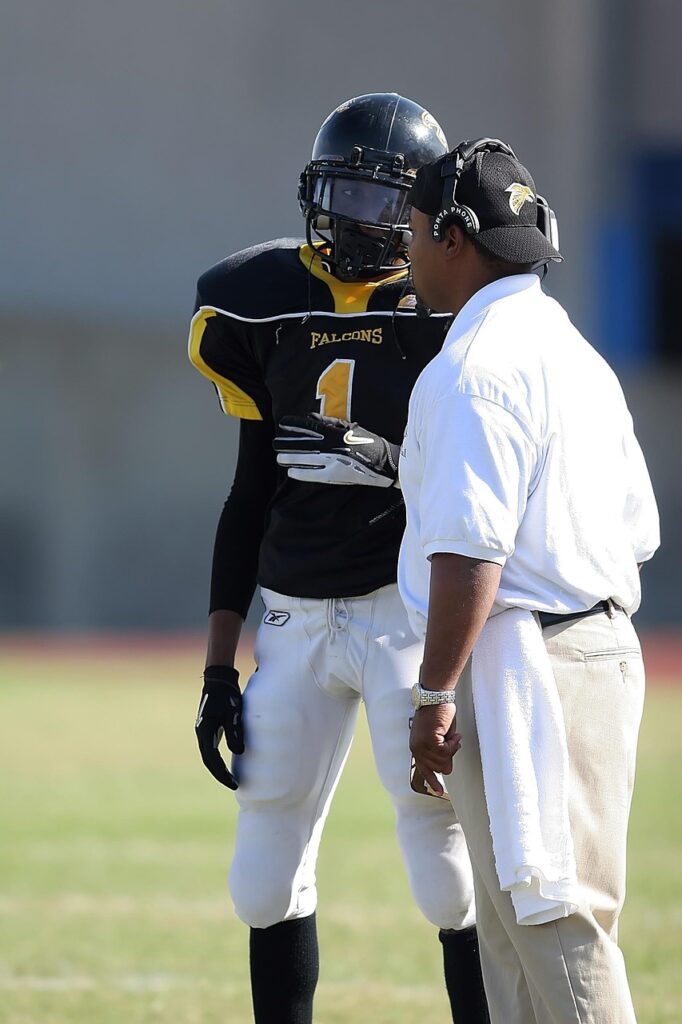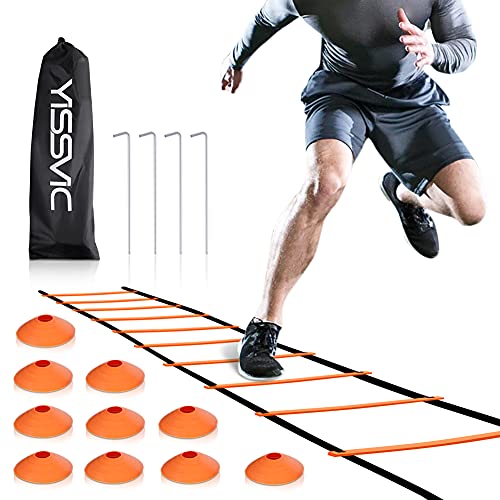We may earn money or products from the companies mentioned in this post.
Balancing school and sports isn’t for the faint of heart. I’ve lived this life from just about every angle—as a national-level figure skating coach for over 25 years, a lifelong athlete myself, and a mom to three driven kids: a college athlete, an elite-level hockey player, and an All-Star cheerleader. I’ve spent decades not only coaching athletes to reach their peak performance but also living the daily grind of early morning practices, last-minute school projects, carpool chaos, and meal prepping for game day.
What I’ve learned? It can be done—with the right systems, mindset, and support.
Over the years, I’ve picked up every time-saving tip, organizational trick, and motivational hack to keep both athletes and their parents from burning out. I’ve coached families through the ups and downs of competitive sports, and I’ve walked that path myself—juggling practices, meets, and school commitments while making sure the house doesn’t fall apart and no one skips a meal.
This guide shares the exact sports tips and tricks I’ve used in my own home and with countless families over the years. Whether you're trying to make time for homework between practice and dinner or wondering how to keep your athlete fueled and focused, I’m here to help you feel less overwhelmed and more in control.
Here’s our family’s motto—one that’s helped us through every season:
- Student first – academics are always the priority.
- In-season sports take precedence over off-season training.
Keep reading for practical strategies on time management, athlete nutrition, mental clarity, and what it really means to be a good sports parent.
Let’s dive in—your athlete’s future (and your peace of mind) depends on it.
What You Might Need
- Dry-erase weekly planner or calendar
- Color-coded pens or highlighters
- Healthy snacks and hydration essentials
- Reusable water bottles (some with fruit infusers)
- Electrolyte drinks (low sugar)
Recovery and fitness tools (jump rope, stretch bands, massage gun, foam roller)
Sleep support products like the Hatch alarm or natural sleep supplements
Prioritizing Academics Let’s face it—school comes first. Prioritizing academics gives teens the foundation for long-term success, regardless of how far they go in their sport. A solid academic standing also opens doors for college scholarships and athletic programs.
Personal Story: My oldest daughter is a shining example of this. She earned both academic and athletic scholarships to college. What many student athletes don’t realize is that very few receive full ride athletic scholarships—unless you’re the quarterback at The Ohio State University, the odds are slim. But academic performance? That’s where most of the scholarship money is earned. Coaches also want to know their athletes will thrive academically and stay eligible. Prioritizing school can truly open the door to more opportunities.
Actionable Tips:
- Create a visual weekly schedule that blocks out school, practices, and homework times.
- Use Sunday evenings to map out the week ahead.
- Color code subjects and activities to make it easy to spot priorities.
- Build in 30 minute homework sprints before or after practices.
- Teach teens to use timers like the Pomodoro method to maximize focus during study sessions. The Pomodoro Technique is a time management method based on 25-minute stretches of focused work broken by five-minute breaks.
Picture This: A cozy homework nook in the corner of a teen’s room, complete with a corkboard calendar, a warm desk lamp, a water bottle, and a post practice protein bar. They sit down with their earbuds in, timer set, knocking out assignments with confidence.

Effective Communication with Coaches
Open communication between athletes and coaches makes all the difference. Teens often feel pressure to show up 110% all the time, but being honest about academic stress or scheduling conflicts can lead to greater understanding and support.
Actionable Tips:
- Role-play conversations with your teen before they approach a coach.
- Teach respectful but honest language: “Coach, I have a big exam tomorrow. Can I leave practice 15 minutes early to study tonight?”
- Encourage your teen to ask for help managing schedules or catching up on missed workouts.
- Establish a weekly check-in system between parent, athlete, and coach to stay proactive.
- Find a tutor when your teen is struggling. We had great success using tutors at outschool.com The online tutoring was perfect for making arrangements around practice schedules and the price was in line with what tutors in the area are charging. Both my 8th grader and Freshman have worked with the math tutors and I intend to have them get ahead this Summer with some of the classes they offer.
Picture This: Your teen standing confidently in front of their coach after practice, calmly explaining their academic load and asking for flexibility. The coach listens and nods, appreciating the maturity and commitment. This is a life skill they will take with them in the future!
Supporting Your Child as a Parent
Parents are the ultimate team managers in this balancing act. From chauffeuring to cheering, your support sets the tone. More importantly, you have the power to notice when your child needs a break, a boost, or a bedtime reminder.
Actionable Tips:
- Be present. Attend games, but also show interest in grades and school projects.
- Offer help organizing backpacks, packing snacks, or managing calendars.
- Watch for burnout signals: irritability, fatigue, skipping meals, or dropping grades.
Use affirmations: “You’re doing great juggling all this. Let me know how I can help.”

Proper Nutrition and Its Impact
Fueling the body is just as important as fueling the brain. A well-nourished teen athlete performs better, focuses longer, and recovers faster. Good nutrition doesn’t need to be complicated—just consistent.
Actionable Tips:
- Keep grab-and-go options ready: protein bars, fruit, hard-boiled eggs, nut packs.
- Rise Protein Bars
- RX Bars – Variety Pack
- Organic Beef Sticks
- Prep overnight oats or smoothies for fast breakfasts.
- Focus meals on lean proteins, complex carbs, and plenty of greens.
- Limit sugary snacks and opt for nutrient-dense swaps.
- Encourage hydration with water and low-sugar electrolyte drinks.
Top Picks:
- Infused water bottles
- Healthy electrolyte powders and drinks
- Snack-sized containers to pack in sports bags
Importance of Sleep
Sleep is the body’s magic recovery tool. Without it, academic focus fades and sports performance suffers. Teens often struggle to wind down, especially after evening practices and games.
Actionable Tips:
- Establish a consistent bedtime, even on weekends.
- Encourage screen-free wind-down routines like stretching, journaling, or reading.
- Invest in a sunrise alarm clock like the Hatch to keep phones out of bedrooms.
- Consider non-habit-forming supplements like Hugh & Grace Night (https://maryanne.hughandgrace.com/) to support restful sleep. (Skip the melatonin!)
Picture This: Your teen, tucked into bed with calming music playing from their Hatch light, their phone charging outside the room, and a journal on the nightstand. They drift off easily, ready to recharge.
Managing Digital Distractions
Streaming, scrolling, and snapping all eat away at time and focus. Helping your teen manage digital distractions is key to making room for academics, rest, and real-world experiences.
Actionable Tips:
- Set daily screen time limits using built-in parental controls or apps.
- Create “device-free” zones like bedrooms and the dinner table.
- Schedule intentional downtime from screens—no Netflix until homework is done.
- Model healthy habits by unplugging yourself during family time.
Picture This: Your teen sets their phone in a charging station in the hallway and sits down to dinner. Later, they unwind with a podcast instead of scrolling TikTok, feeling more present and less overwhelmed.
Warm-Ups, Cool Downs, and Recovery Tools
Warm-Ups, Cool Downs, and Recovery Tools Teen athletes are especially prone to injury without proper warm-up and cool-down routines. With so many distractions (hello, smartphones!), it’s easy for teens to skip the basics.
Actionable Tips:
- Start every workout with dynamic stretching and end with foam rolling or static stretching.
- Encourage 5-minute post-practice routines using resistance bands or massage tools.
- Create a designated recovery kit with essentials like a massage gun, jump rope, or foam roller.
Make it a habit by linking recovery time to something fun (like listening to a favorite playlist).
Top Tools to Have On Hand:
- Jump rope
- Agility Ladders
- Stretchout Strap
- Foam Rollers
- Massage gun
- Compression leg massager
- Cold Compression Therapy
- Arnica Gel for muscle pain and stiffness
Picture This: Your teen comes home from practice, grabs their massage gun and stretch band, and hits the recovery zone in the family room. Their favorite playlist is playing, and their body is getting the care it needs.
Balancing books and balls isn’t easy—but it is possible. With strong communication, smart time management, nourishing meals, proper rest, and consistent recovery, your teen athlete can thrive in both academics and sports.
Keep tweaking your playbook as the seasons shift and schedules change. Most importantly, celebrate the small wins along the way. You’re raising a resilient, well-rounded champion—on and off the field.
Ready to equip your teen with the tools they need? Check out our favorite Amazon finds linked throughout this post to help make balancing the books and the ball a win-win!



















Love your post! This is a great post with actionable tips! I suggest that you make the link fonts a little smaller.
Thank you! I did go back and edit the links. Hopefully they are smaller.
Good https://is.gd/tpjNyL
I have 3 kids, non of them really got involved in sports per-se. But at one point 1 was in a dance class and the other 2 were taking Taekwondo. Not as stressful as hockey, and I don’t think I could have kept it all straight without my wonderful amazing wife.
Thanks for the tips!